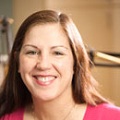Congress has so far been unsuccessful in attempts to repeal the Affordable Care Act. There’s a lot of debate about how to best contain spiraling health care costs and some Americans say it’s time for a national health care plan. The idea isn’t new but understanding how it would work and what it would cost may be difficult to grasp, but Dr. Carol Paris, the President of Physicians for a National Health Program says getting rid of the insurance industry and pharmaceutical lobby would save a lot of money.
PARIS: I don’t think, in this country, we’re gonna be able to solve our health care crisis by regulating the for-profit insurance industry. It simply has to go. And that’s when I became involved with Physicians For National Health program.
TOWNSEND: Critics of this idea — and as you said it’s been around for quite some time, the single payer concept — critics say it would be enormously expensive, that we would not be able to afford it as a nation. What do you say to those criticisms?
PARIS: Our health care expenditures currently are 17.7 percent of GDP, and the estimate is that by 2025, if we don’t do something, it’s going to be 19.9 — just shy of 20 percent of GDP. So we have to do something and in fact, if we do nothing, over the next ten years, one estimate is we’ll spend $49 trillion over ten years on health care. And if we have a national health program, we’d spend $32 trillion. The numbers are big, but in fact, passing a national health program would save money. And it would allow us then to begin to look more strategically at other aspects of the delivery side of health care and make modifications that would then really begin to save money.
TOWNSEND: What are your thoughts about the current system in place, the Affordable Care Act?
PARIS: The Affordable Care Act has many flaws, but it did accomplish some things that the American people like a whole lot. But make everyone be able to get insurance, in other words eliminating pre-existing conditions especially, is to make sure that even healthy people and young people buy insurance, and that’s where the very unpopular aspect came into play — the mandate. I completely understand the frustration of both individuals and small businesses of being mandated to purchase a product that they don’t have any choice or have limited choice about, and in fact is a really substandard product where 30 percent of the premium costs are going into administrative waste and profit. And that’s the money that a National Health Program would redirect by eliminating the health insurance industry putting everybody in a single risk pool, we would save $500 billion a year, and then add to that have the ability to negotiate drug prices, and our estimates are we’d save another $106 billion dollars a year. So we’re talking about over half a trillion dollars a year in savings.
Dr. Carol Paris, the President of Physicians for a National Health Program, will be speaking in Fairbanks this week and also in Juneau and Anchorage next week:
Aug 29: UAA College of Arts room 150 from 7pm-9pm.
Lori Townsend is the news director and senior host for Alaska Public Media. You can send her news tips and program ideas for Talk of Alaska and Alaska Insight at ltownsend@alaskapublic.org or call 907-550-8452.





